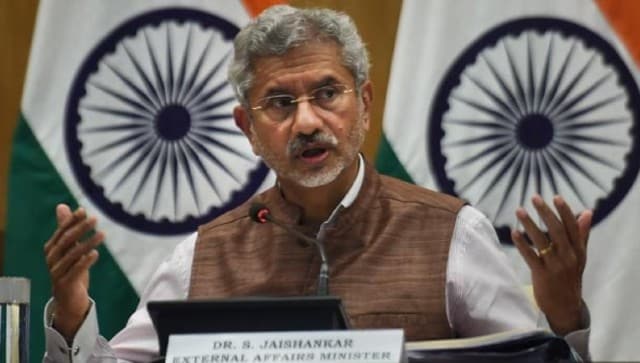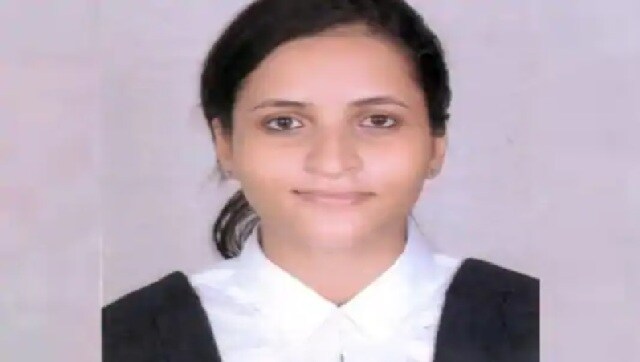Mature democracy like India must accept divergent, critical views with equanimity and dignity, writes Lt-Gen Bhopinder Singh – India News , Firstpost
We did not slam those international bodies and their reportage when they spoke positively about the country, which leads one to believe that the question of their credibility is selectively posited
To deny the existence of a politically patronised ecosystem of ‘fringe elements’ would be to live in naivete. Political parties have ‘fringe elements’ in terms of brash spokespersons, rabble-rousers, ideological affiliates (part of an ‘extended family’) or ostensible ‘sympathisers’ who provide the invaluable service of saying-the-unsayable, whilst offering the plausible pretense of deniability onto the real powers-that-be.
The widest narrative on issues is not painted by the ponderous officialese but by the extremist positions taken by the ‘fringe elements’ in shaping public perception (especially on social-media), ably aided by the telling silences, leniencies and inaction, afforded onto them. This is classic propaganda, circa the 21st Century. The cadres are particularly delighted by the fringe’s diatribe, provocative and often false ‘output’ in public space — with the tacit sanction revoked, only when the fringe’s extremism becomes electorally counter-productive, indefensible or embarrassing to ignore.
Such an ecosystem always existed, but it was never as organised, institutionalised and efficient in ‘managing’ the national narrative, and often, distorting reality. This phenomenon naturally rails against the free flow of opinions and reality-checks, as reactions have become increasingly thin-skinned about anything perceived to be detrimental to partisan interests.
Like any country at any given time, there are evolutionary changes for the better or worse, which reflect the record and performance of the dispensation of the day. It behooves mature democracies to accept the divergent views with a sense of proportion, equanimity and dignity that may not forthcoming in illiberal or autocratic states. Recently, as per the Washington-based, Freedom House report on Freedom in the World 2021, India’s democracy was relegated from ‘Free’ to ‘Partly Free’ — expectedly, the Opposition parties picked up the same and amplified the import of the findings.
But that is the rightful role of the Opposition parties, else democracies run the real risk of becoming ‘echo-chambers’ of assent.
However, perpetuating the run of thin-skinned reactions, as opposed to open-minded introspection and reflection, was none other than the external affairs minister, who criticised the same: “We have a set of self-appointed custodians of the world who find it very difficult to stomach that somebody in India is not looking for their approval, is not willing to play the game they want to play”. While the government is certainly in its right to dispute the views and objectivity of any independent body with facts, but to cast aspersions about ‘playing games’ or suggesting that the said body was in cahoots with the US administration by insinuating, ‘Whatever you may say, nobody questions an election in this country.’ Can you say that in those countries’, the assessment was loaded, and factually wrong?
The same report was extremely castigating on the health of democracy in the US too, but that fact was economised and ignored in the counter-blame excercise. The Freedom House report indicted US sharply by noting, ‘in recent years its democratic institutions have suffered erosion, as reflected in partisan pressure on the electoral process, bias and dysfunction in the criminal justice system, harmful policies on immigration and asylum seekers, and growing disparities in wealth, economic opportunity, and political influence’.
To the specific point on democracy in India, Freedom Report was followed by Swedish V-Dem Institute’s Democracy Report which too downgraded India from ‘world’s largest democracy’ to ‘electoral democracy’. Other pertinent pointers of the narrative came in the different World Press Freedom Index, where India dropped to 142 out of 180 countries, by the global watchdog organisation, Reporters San Frontieres. Further, the Global Human Freedom Index, which ranks civil, economic and personal freedoms had seen a similar trend with a drop from rank 94 to 111, last year.
In parallel, India has done well on some other accounts like on Ease of Doing Business, where it jumped 14 spots to 63rd position — this follows a trend in the preceding five years (2014-19) where India improved ranking by 79 positions. Later McKinsey in its own report also reflected the same positivity. Even the interlinked Global Innovation Index of last year reported a positive trend and ranking improvement for India, in recent years. While the Opposition played its own politics by slamming such positivity as ‘bogus reports’ — there was no similar slamming of such international bodies and their reportage by the government, when the results were favourable. The question of credibility or intent of an international body, publication or organisation is selectively posited.
The same smallness plays out in the Awards domain where Nobel Laureates like Dr Amartya Sen and Dr Abhijit Banerjee were downplayed for their supposed ‘Left leanings’ (read, critical of the ruling dispensation), just as journalist Ravish Kumar’s Magsaysay Award was largely ignored. The ‘troll army’ sunk the pettiness of attributions towards the Nobel Awards by invoking the memory of Alfred Nobel as the A-bomb scientist (without explaining the full context), whereas the selective history of Ramon Magsaysay’s ‘dictatorship’ was enough to pooh-pooh the Magsaysay Awards.
The dichotomy of the euphoric reception, amplification and celebration afforded to the prime minister winning the hitherto unknown and ‘first-ever’ Philip Kotler Presidential Award, completes the narrative of selectivity. Again, the point is not that the Indian prime minister has not won international recognition; on the contrary, he has been honoured with some truly substantial recognition like the Order of Abulaziz Al Saud (Highest Saudi honour to a non-Muslim), State Order of Ghazi Amir Amanullah Khan (Afghanistan), Order of Zayed Award (UAE), Order of St Andrew Award (Russia), Champions of the Earth Award (United Nations Environment Programme), Global Goalkeeper Award (Bill and Melinda Gates Foundation) etc.
All these are either the highest sovereign awards or given by international bodies, just like the prestigious Nobel or Magsaysay. But the celebrations or dismissal of any news pertaining to the awards, reports or rankings seem to follow the consistent and unmistakable pattern of selectivity, depending on who gets it and what it suggests, politically.
What suits the narrative is celebrated ecstatically, but what doesn’t, is auto-instinctively and forcefully questioned, shrugged and lampooned.
Even international journals like The Washington Post, The New York Times, Guardian, Economist, Time, Foreign Affairs or media houses like BBC, Al Jazeera or CNN, are routinely shrugged off as harbouring ‘anti-India’ sentiments. That the same media houses are at the forefront of forcefully questioning, challenging and holding their own resident or regional governments to account, is of little consequence. In an expansive sweep of logic, these corporate houses can be creatively jeered as ‘Left-leaning’ with ‘champagne socialists’ — but when the do report a positive piece, the same is proudly presented as an affirmation of ‘India Shining’. The casualty, as always, is balance.
Such thin-skinned reactions were not becoming of an Atal Bihari Vajpayee whose political maturity, wisdom and dignity impressed Jawaharlal Nehru in Vajpayee’s very first speech in the Parliament. Vajpayee was gracious enough to applaud the rival party after the first nuclear test, for instance, and was generous in words and reverence for political adversaries like Nehru or Manmohan Singh. Vajpayee could pull up his own for their political intransigence, misdemeanour or simple inelegance as he once famously retorted at a RSS gathering, “Aap ke gale ke neeche kya nahi utara hai, Gandhi ya Socialism?” (What is that you cannot digest, Gandhi or Socialism?).
He was a statesman and a leader who needed no ‘echo-chamber’ or friendly ‘fringe-element’ to do his political bidding — as Vajpayee could be equally devastating and brilliant in demolishing the narrative of his political opponents, albeit, with facts, dignity and unswerving commitment to liberality and democratic traditions. That is the sort of large-heartedness, erudition and profundity that is missing today. Giants like Nehru, Vajpayee and Manmohan were not on perennial ‘election-mode’, as they had a manifest sense of destiny about them — they were politically combative and magnanimous, in equal measure.
All three were open about their failures and never pretended to be perfect, this aspect vastly enriched our politics and perceptions as a civilisational people, who were always looked-up for their wisdom and humility. One of the curses of our times is the astoundingly mediocre, incoherent and divided Opposition, and this has only emboldened the ruling dispensation into bulldozing their narrative. Those not enthralled or coerced by the optics and stage management within the country, like these international agencies or journals, have a blunt way of communicating the truth, both the good news and the, not-so-good news. For the sake of Indian democracy (beyond electoral mathematics), a little bit of graciousness, thick-skinned maturity and introspection towards the contrarian views and its reportage, will go a long way.
This just in: Prime Minister has jointly penned an op-ed along with three other ‘Quad’ leaders in the much bandied and vilified, Washington Post; but no brickbats are expected for the journal this time.
The author is former Lieutenant-Governor of Andaman and Nicobar Islands, and Puducherry
Subscribe to Moneycontrol Pro at ₹499 for the first year. Use code PRO499. Limited period offer. *T&C apply



